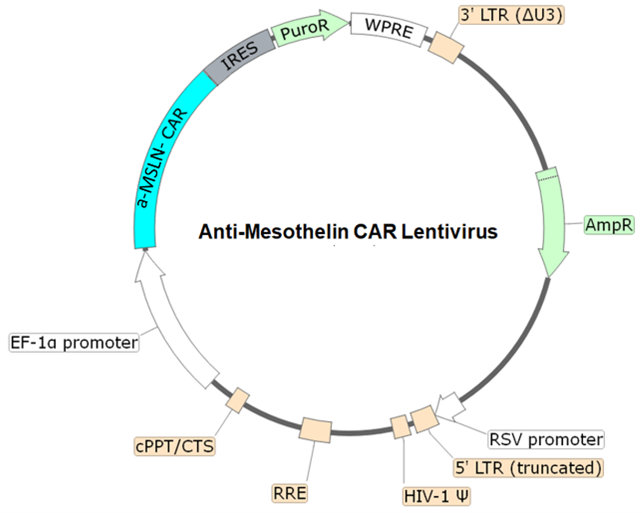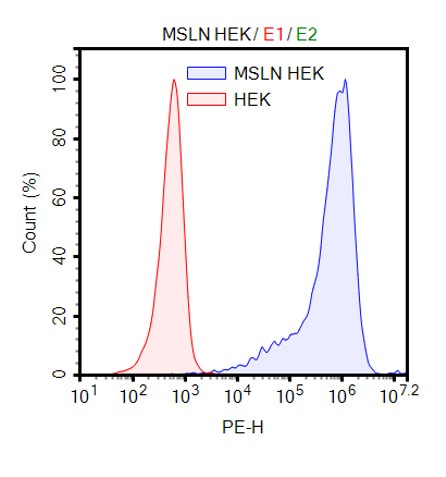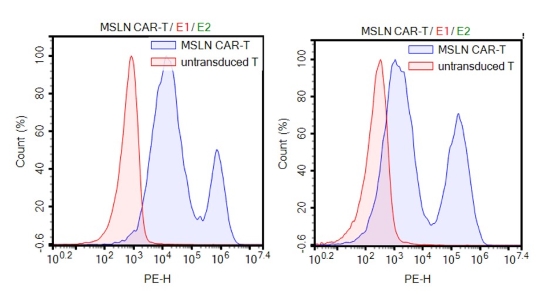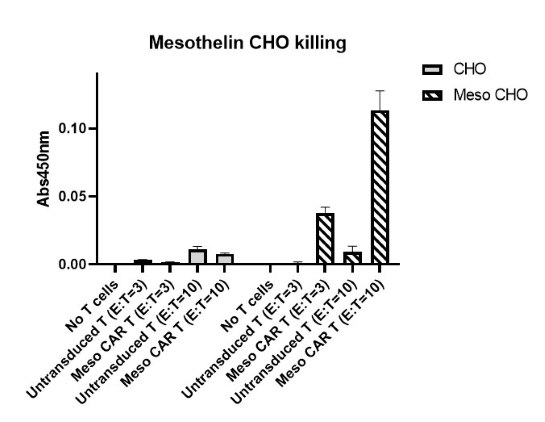Anti-Mesothelin CAR Lentivirus (P4 ScFv-CD8-4-1BB-CD3ζ)
The Anti-mesothelin CAR lentiviruses are replication incompetent, HIV-based, VSV-G-pseudotyped lentiviral particles that are ready to infect almost all types of mammalian cells, including primary and non-dividing cells. These viruses transduce the ScFv (single-chain fragment variable) of anti-mesothelin (Clone P4) linked to a 2nd generation CAR (Chimeric Antigen Receptor) containing CD8 hinge and transmembrane domains, and the 4-1BB and CD3ζ signaling domains (Figure 1).
A

B

Figure 1. (A) Schematic of the lenti-vector used to generate the anti-mesothelin CAR lentivirus and (B) Construct diagram showing components of the anti-mesothelin CAR.
| Name | Ordering Information |
| PBMC, Frozen | BPS Bioscience #79059 |
| Human Interleukin-2 | BPS Bioscience #90184 |
| EasySep™ Human CD4+ T Cell Isolation Kit | Stemcell Technologies #17952 |
| EasySep™ Human CD8+ T Cell Isolation Kit | Stemcell Technologies #17953 |
| Human CD3/CD28/CD2 T Cell Activator | Stemcell Technologies #10970 |
| Biotinylated Human Mesothelin | BPS Bioscience #100291 |
| PE-Streptavidin | Biolegend #405203 |
| Mesothelin - CHO Recombinant Cell Line | BPS Bioscience #78132 |
| IFN-g (Human) Colorimetric ELISA Detection Kit | BPS Bioscience #79777 |
The lentiviruses were produced from HEK293T cells, concentrated, and resuspended in DMEM.
Mesothelin (MSLN) is a glycophosphatidylinositol (GPI) linked cell-surface protein that is produced as a ~70 kDa precursor protein and cleaved by Furin protease to generate the ~40 kDa mature form. MSLN is frequently overexpressed in mesothelioma, ovarian, pancreatic, and non-small cell lung cancers, while its expression in normal tissues is restricted to the mesothelial lining. MSLN is a tumor-associated antigen and has been an attractive target for targeted immunotherapy, including drug-conjugated antibodies and chimeric antigen receptor T cells (CAR-T Cells).




